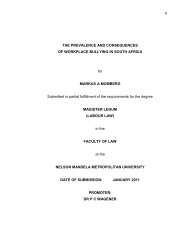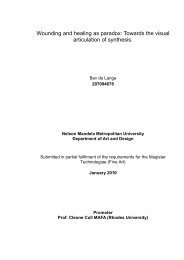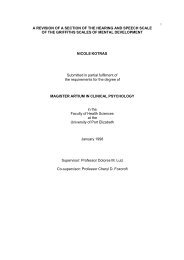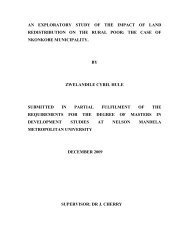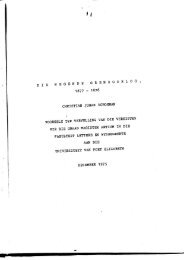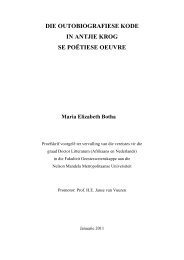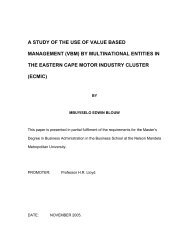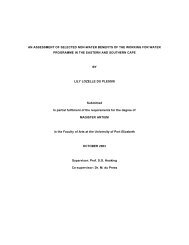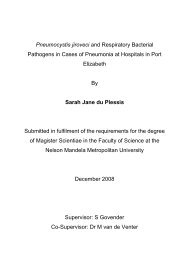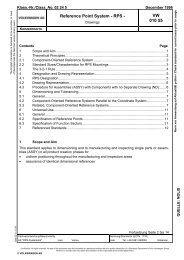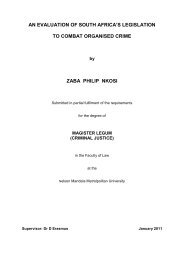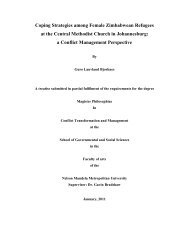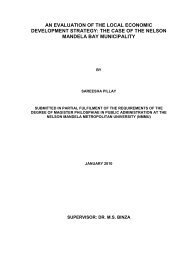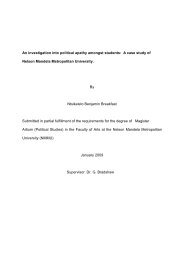nicole kotras masters thesis
nicole kotras masters thesis
nicole kotras masters thesis
You also want an ePaper? Increase the reach of your titles
YUMPU automatically turns print PDFs into web optimized ePapers that Google loves.
Table 6<br />
Demographic data for Sample 1 and Sample 2<br />
Cultural group: W<br />
C<br />
B<br />
I<br />
SES: Upper<br />
Middle<br />
Lower<br />
Language group: E<br />
A<br />
Xh<br />
Gender: Male<br />
Female<br />
SAMPLE 1 (N=204) SAMPLE 2 (N=180)<br />
65 (32%)<br />
47 (23%)<br />
64 (31%)<br />
28 (14%)<br />
68 (34%)<br />
93 (47%)<br />
43 (21%)<br />
99 (49%)<br />
45 (22%)<br />
60 (29%)<br />
113 (55%)<br />
91 (45%)<br />
66 (37%)<br />
34 (19%)<br />
54 (31%)<br />
26 (14%)<br />
58 (32%)<br />
84 (48%)<br />
38 (21%)<br />
97 (54%)<br />
33 (18%)<br />
50 (28%)<br />
106 (59%)<br />
74 (41%)<br />
Mean age range 71 months 71 months<br />
Percentages in the table cells have been rounded off to the nearest percentage. W = White;<br />
C = Coloured; B = Black; I = Indian; E = English; A = Afrikaans; Xh = Xhosa<br />
Table 7 provides a breakdown in percentages of Sample 1 and 2's age composition<br />
in two-month ranges. The mean age for both samples is 71 months. Furthermore, the least<br />
number of participants for both samples fell in the age range 82-83 months.<br />
Keppel (1991) stated that research results can be generalized to the larger<br />
population if subjects are selected randomly from the population. However random<br />
sampling is both an expensive and time consuming process (Kerlinger, 1986). Furthermore,<br />
the practical considerations of any study need to be taken into account before a sampling<br />
procedure is chosen. Statistical generalizations, which depend on random sampling, are<br />
often not justified, but the extension of findings to a broader class of subjects is determined<br />
primarily by the appropriateness of generalizations in a particular field of research. As<br />
stated by Keppel (1991) nonstatistical generalizations depend on knowledge of a particular<br />
research area. In view of the exploratory nature of the present study and the limited<br />
availability of resources and manpower, the researcher chose not to make use of random<br />
sampling. For this reason purposive sampling, a non-probability sampling procedure, was<br />
carried out (Downie & Heath, 1974).<br />
68



